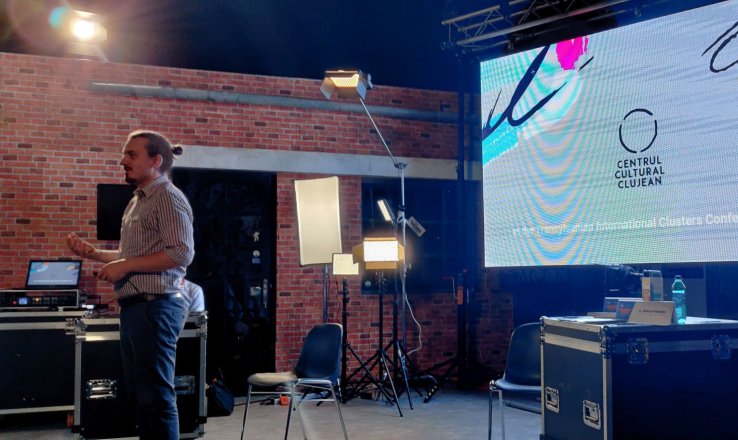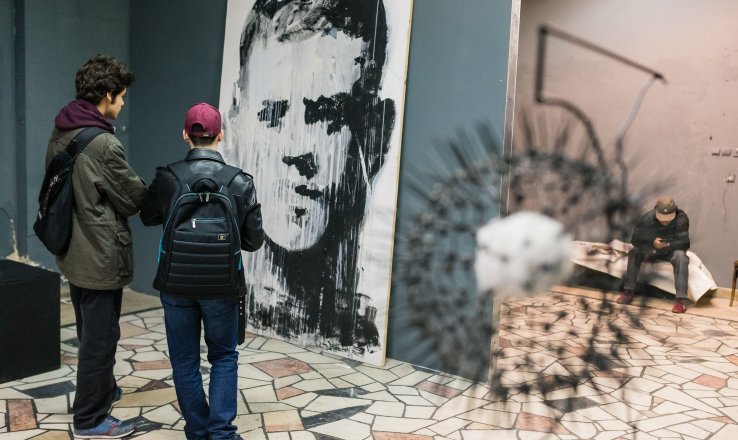Why bidding for ECoC is always successful
Cluj-Napoca is the second largest city in Romania and the unofficial capital of Transylvania.
In late 2016 the city came second in Romania’s internal competition for the title of European Capital of Culture in 2021. In the finals there was a tie, twice, with the city of Timișoara, and the Chair of the European panel had to cast a second vote to decide which city will be the Romanian ECoC in 2021.
It hasn’t been easy. The disappointment was huge: more than 200 local cultural operators have been working for the Cluj bid book and 60 for the development of the cultural strategy. We have been working hard for seven years (2010-2016). In this timeframe we have achieved many things that we are proud of: we placed culture in the centre of the city development plan, we fostered local collaborations in the cultural sector and between culture and other sectors, we put several delicate topics on the public agenda and we increased the local budget for non-refundable funds for culture to over 3 million euro and more than 1% of the total budget of the city.
When the title announcement was made, despite the fact that we had hopes to be selected, we were also aware of all these achievements - and of our limitations too -, and we were ready for a plan B which was very much similar to plan A. Not more than week after the announcement we issued a press release saying that our city will carry on with the implementation of the ECoC programme.
We knew that the legacy of an ECoC bid is a treasure for the city. During years of preparations, cities invest energy and hope, effort and money. They discover unknown connections and they get to understand themselves better. They foster local ecosystems for collaboration and innovation. They create a portfolio of cultural projects able to bring social transformation and local development. They identify local and national funding sources for these projects. If we are honest with ourselves, all this money should still be available, no matter if you get selected or not.
In 2017 we changed the name of our association from Cluj-Napoca 2021 to Cluj Cultural Centre. We were no longer preparing our city for a peak year of cultural activities, but started working for the establishment of a long-term cultural institution that would look at culture as sustainable development in the city and the region.
In three years, we almost doubled our membership from 50 organisations to 95. We are now 21 full-time people in the executive team and our budget for 2020 will be over 2 million euro, coming from European funds, from public national and local budgets and from corporate partnerships.
Current and former candidate cities working together
In our bid book we planned to establish a European network for candidate cities, as a platform to support member cities in their bid book programming, but also to help them implement their programmes no matter if they are awarded with the title or not.
The network aims to gain wider European acknowledgement of culture as sustainable development and to extend the existing European cultural cooperation frameworks. It also contributes to the ECoC programme legacy, by facilitating the implementation of more ECoC programmes throughout Europe.
The programme of the network focuses on capacity building for member organisations, organizing conferences and annual meetings, and developing a platform for promoting member cities, as well as facilitating collaborations among them. Also, the network aims to become a voice in shaping European cultural policies.
Member cities: Cluj-Napoca (RO), Aveiro (PT), Belfast (UK), Braga (PT), Debrecen (HU), Dublin (IE), Eleusis 2021 (GR), Faro (PT), Gdansk (PL), Klaipeda (LT), Leeds (UK), Neringa (LT), Nurnberg (DE), Oulu (FI), Plunge (LT). Chemnitz (DE), Leeuwarden 2018 (ND) Savonlinna (FI) and other cities have shown interest to join the network and will be welcome in Culture Next after joining their first network meeting.
About the Cluj Cultural Centre
The Cluj Cultural Centre is a non-governmental organization for culture and urban development.
Initially intended to prepare the city’s candidacy for the European Capital of Culture 2021, the Cluj Cultural Centre implements a comprehensive program addressing strategic challenges of society through projects in contemporary art, well-being, cultural and artistic education, urban regeneration, community connection, social inclusion, cultural industries, rural development, ethnography of imagined worlds, cultural sector’s capacity-building, social and urban innovation, international cooperation, research, and policies.
The Centre has 95 members: cultural institutions and the local cultural organizations, Cluj universities, business clubs and clusters, civil society organizations, local and regional administration.
We believe that culture makes cities present and human. Our mission is to mobilize culture, in partnership with other sectors, in order to contribute to the social transformation and urban development.
Our strategic objectives are to develop Cluj as a relevant European city in arts and culture, to facilitate the cohesion and vitality of the local community, to contribute to local and regional development and to strengthen the role of culture by creating an up-to-date and sustainable organizational model.
Ștefan Teișanu, Director of the Cluj Cultural Centre (former Cluj-Napoca 2021)

